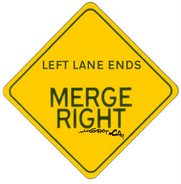Milton Friedman had a great influence on my ideas. I started university as a communist ... but then I met some. And, while other authors, such as Orwell, turned me off hadcore economic planning but effectively I remained a social democrat until I read Friedman.
I read Free to Choose and it was a life-changing experience. Like most good ideas, the thing I took from it most was perhaps the simplest: that individuals, despite all their faults, know better what is in their interests than anyone else. As a general principle it's hard to argue against, I've always thought of it as the 'Christmas' principle. Imagine, if instead of us buying our own products, everyday was Christmas and we had to rely on our needs through, well-meaning, gifts from others. This is what central planning is like and it is a disaster. I've had some terrible Christmas presents over the years.
I've also spent tonight reading some of the obituries on Friedman. Two things have struck me. 1, Friedman's contributions cover such a wide range of topics; including creating financial derivatives, consumption theory and the relationship between free markets and democracy. 2, in his prediction of stagflation he is perhaps one of the only economists who designed a rigourous model that actually predicted economic outcomes. You often here about how Einstein's theory of relatively was demonstrated by the bending of light during an eclipse but it is rare that economics can create such controlled conditions.


3 comments:
"[T]he thing I took from it most was perhaps the simplest: that individuals, despite all their faults, know better what is in their interests than anyone else."
As Ayn Rand put it: "whose interests does a society of altruists serve?"
the thing i liked best the matrix showing best to worst use of cash: you spending your money on on you is generally best; you spending someone elses cash on someone else is generally the worst use of cash.
time for a new article peoples!
Post a Comment